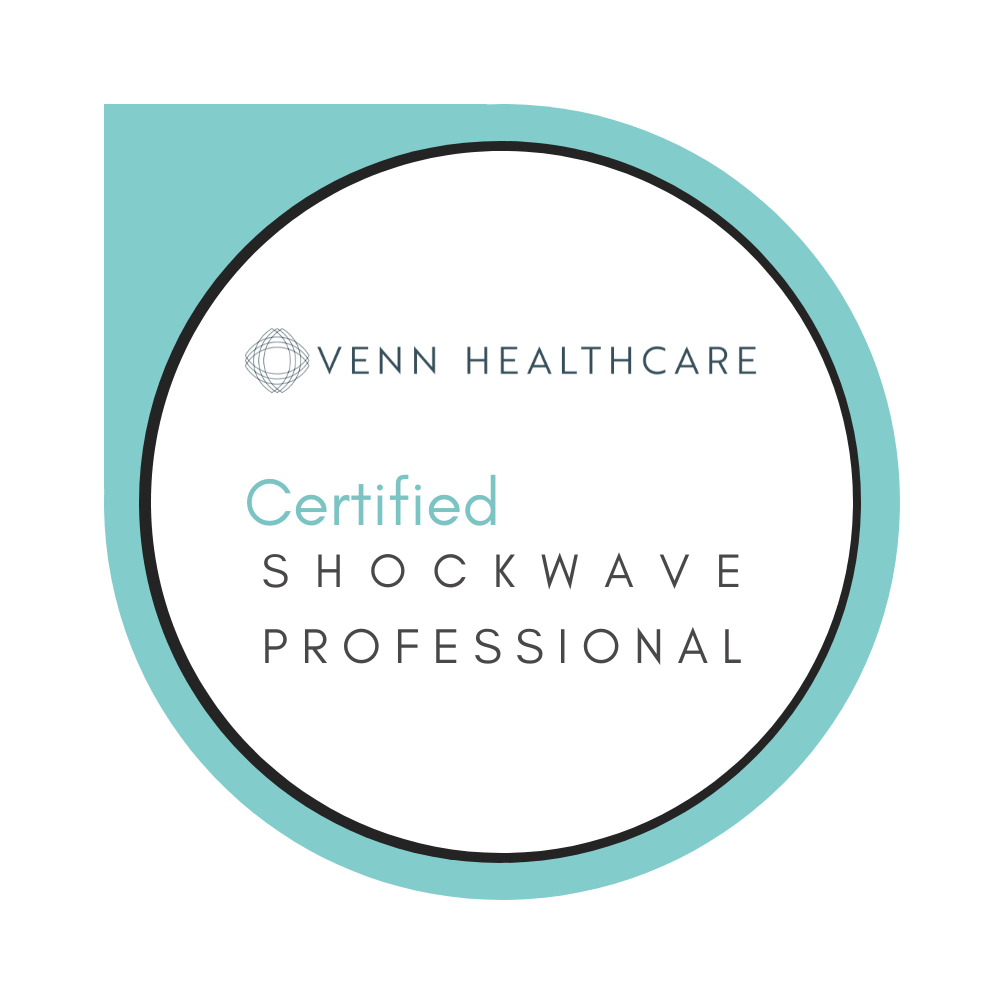What is Shockwave Therapy?
Shockwave therapy involves passing high-frequency acoustic pulses, known as “shockwaves” through the skin and into a targeted area of tissue. By creating microtrauma, shockwaves harness the body’s natural regeneration processes to repair tissue and blood vessels, accelerating the repair process.
Shockwave Therapy can treat a wide variety of conditions and disorders from tendinopathies, muscle strains and stress fractures to erectile dysfunction and more.
Shockwave Therapy is clinically proven to help and is recommended by the National Institute for Health and Clinical Excellence (NICE). This non-surgical Shockwave treatment is also recognised by top orthopaedic hospitals and used by high profile professional sports bodies such as the English Institute of Sport, UK Athletics, Welsh Rugby Union, and many Premier League football clubs. Many people turn to shockwave therapy for back pain, tendonitis and many other painful conditions.
Why Try Shockwaves?
Advantages of shockwave therapy include that it:
Is completely non-invasive (no surgery required).
Aids quick recovery.
Does not require medication.
Does not require anaesthesia.
Requires short 20-minute treatment sessions.
Can provide significant benefit within 6-8 weeks of treatment.
What is Shockwave Therapy & Does it Really Work?
-
Ankle/leg pain
Achilles Tendonitis, Plantar Fasciitis, heel spur, medial tibial stress syndrome, hamstring tendinopathy
-
Knee/shin pain
Patellar Tendonitis (Jumper's / Runner’s Knee), Tibial Edge Syndrome (shin splints)
-
Elbow/Arm pain
Forearm muscles, Epicondylitis (Tennis or Golfer’s Elbow)
-
Shoulder/neck pain
Periarticular shoulder pain, Chronic neck and shoulder pain, Tendinosis Calcarea (calcific tendinitis)
-
Back Pain
Lumbalgia (lumbago), Dorsalgia (chronic back pain)
-
Men's Health
Erectile dysfunction, Peyronie’s disease, Chronic Pelvic Pain Syndrome (CPPS)
FAQs
-
Shockwave Therapy is so effective for a variety of different conditions. There are two reasons for this. Shockwaves work on your body at a cellular level to trigger responses, such as stimulating your cells to help the body to heal itself.
Secondly, Shockwave Therapy is a blanket term covering several types of treatment. These treatments include focused shockwave, radial pressure waves and vibration therapy. These all act in a similar, but slightly different way, which means Shockwave Therapy can treat all sorts of conditions.v
-
Yes. Shockwave therapy is perfectly safe. It has NICE guidance and FDA approval for a large number of indications.
Shockwave has been used since 1980s, with no known side effects yet observed.
-
Both!
Radial shockwaves are at their strongest at the source of the wave, and diffuse throughout a treatment area. Focused shockwaves are at their strongest point at a focused point within the affected tissue.
Focused shockwaves are mostly used to treat of deep trigger points or areas, whereas radial shockwaves transmit outwards and do not reach as deep into the target area.
At LifePlus Clinics we use both shockwave technologies to ensure the treatment is best tailored to your condition.
-
There is a great deal of evidence to show that shockwave therapy can achieve great results even with historical conditions.
-
This depends.
Focused shockwave therapy is not painful at all. You should be able to feel that something is happening but it is more of a sensation rather than pain.
Radial shockwave therapy involves some slight discomfort. However, the treatment is delivered with a low amount of energy at first, which is increased as your body acclimates. Shockwave therapy creates an analgesic (pain relieving) effect, and many patients report an immediate relief following shockwave therapy from the pain caused by their chronic conditions.
-
This can vary quite a lot depending on the condition type, condition severity and number of sessions needed.
The best way to find out is to contact our team.


